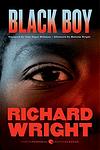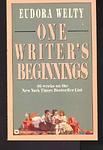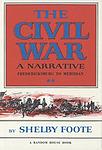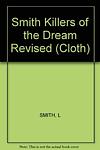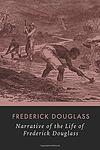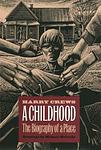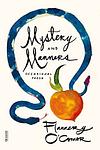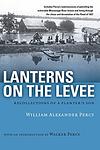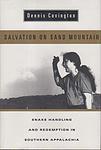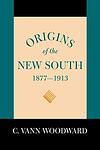The Best Southern Nonfiction of All Time
This is one of the 284 lists we use to generate our main The Greatest Books list.
-
Let Us Now Praise Famous Men by James Agee
This book is an in-depth examination of the lives of three tenant families in the South during the Great Depression. The author combines detailed descriptions, journalistic reporting, and poetic prose to capture the harsh realities of poverty, racial discrimination, and the struggle for survival. The book also includes evocative photographs that further illustrate the living conditions and daily lives of the families. The work is a profound exploration of the human condition, offering a raw and unflinching look at the effects of economic and social injustice.
-
Black Boy by Richard Wright
"Black Boy" is an autobiographical account of a young African-American boy growing up in the South during the early 20th century. The book explores his experiences with extreme poverty, racism, and his struggle to find his place in a society that marginalizes and devalues him. The protagonist's desire for self-expression and understanding leads him to a love of literature and writing, providing him with a means to challenge and critique the oppressive social structures around him.
-
The Mind of the South by W. J. Cash
"The Mind of the South" is a comprehensive exploration of the culture, socioeconomic conditions, and mindset of the American South. The author delves into the historical development of the South, analyzing the impact of slavery, the Civil War, and the subsequent reconstruction on the region's collective psyche. The book provides a critical examination of the South's perceived uniqueness, its racial dynamics, and the enduring influence of its past on contemporary Southern identity.
-
One Writer's Beginnings by Eudora Welty
This memoir explores the author's early life in Mississippi and her journey towards becoming a writer. The narrative is divided into three sections: Listening, Learning to See, and Finding a Voice, which respectively discuss the author's childhood memories, her education and love for reading, and her growth as a writer. The book delves into the author's personal experiences, her family history, and the influence of the Southern United States on her work.
-
The Civil War by Shelby Foote
This comprehensive three-volume series provides an in-depth and detailed narrative of the American Civil War. It encompasses the political, social, and military aspects of the war, offering a balanced view of both the Union and Confederate sides. The series also delves into the personal experiences of key figures, including generals and soldiers, as well as civilians affected by the war. This work is known for its meticulous research, vivid descriptions, and engaging storytelling style.
-
In Cold Blood by Truman Capote
This true crime novel tells the story of the brutal 1959 murder of a wealthy farmer, his wife and two of their children in Holcomb, Kansas. The narrative follows the investigation led by the Kansas Bureau of Investigation that ultimately leads to the capture, trial, and execution of the killers. The book explores the circumstances surrounding this horrific crime and the effects it had on the community and the people involved.
-
Killers of the Dream by Lillian Smith
"Killers of the Dream" is a non-fiction book that examines the roots of racism in the American South, particularly in the author's home state of Georgia. The author argues that segregation is not only harmful to black people, but also to whites, as it distorts their view of reality and their own humanity. The book explores the psychological, social, and cultural effects of racism, and calls for an end to racial discrimination and segregation.
-
Narrative of the Life of Frederick Douglass by Frederick Douglass
This autobiographical book provides a first-hand account of the life of a former slave, chronicling his experiences from his early years in bondage, his struggle to teach himself to read and write, his daring escape to freedom, and his subsequent rise as a prominent abolitionist. The narrative is a powerful exploration of the physical and psychological effects of slavery, making it a significant work in American history.
-
A Childhood: The Biography of a Place by Harry Crews
This book is a memoir of the author's early years in Bacon County, Georgia, during the Great Depression. It details his life in a poverty-stricken, rural community, exploring themes of hardship, resilience, and the human spirit. Despite the harsh circumstances, the author also recounts moments of joy and beauty, offering a vivid and compelling portrait of his childhood and the place that shaped him.
-
North Toward Home by Willie Morris
"North Toward Home" is a memoir that explores the author's journey from his childhood in the South during the 1940s, through his college years in Texas, and finally his time in New York City as a young writer in the 1960s. The book offers a vivid portrayal of the South's racial tensions and the author's struggles with the cultural differences in the North. The author's longing for his Southern roots while grappling with the stark realities of racism and social change forms the central theme of the book.
-
Mystery and Manners by Flannery O'Connor
"Mystery and Manners" is a collection of essays and lectures exploring the nature and purpose of literature, with a particular emphasis on fiction. The author provides a deep reflection on the craft of writing, the role of the author, and the relationship between literature and religion. The book offers valuable insights into the author's own approach to writing, while also discussing broader philosophical and aesthetic issues related to the art of storytelling.
-
All Over But The Shoutin' by Rick Bragg
The memoir is a heartfelt tribute to the author's mother who struggled to raise her three sons in dire poverty in the deep south. The author recounts his journey from a poor, white, uneducated family in Alabama to winning a Pulitzer Prize as a national correspondent. It is a story of love, loss, and redemption, showcasing the enduring strength and resilience of a mother's love amidst hardship and adversity.
-
The Habit of Being by Flannery O'Connor
"The Habit of Being" is a collection of personal correspondence by a renowned southern writer, offering a profound insight into her private life, thoughts, and creative processes. These letters, written over a span of two decades, reveal her struggle with lupus, her strong Catholic faith, her sharp wit, and her dedication to writing. The book also provides a glimpse of her relationships with literary contemporaries and her insightful thoughts on contemporary issues, literature, and religion.
-
Incidents in the Life of a Slave Girl by Harriet Jacobs
This book is a poignant autobiography that depicts the life of a young woman born into slavery in the southern United States in the early 19th century. The narrative provides a harrowing account of her childhood and adolescence, marked by abuse and exploitation. In her desperate quest for freedom, she spends seven years in a tiny attic, hiding from her oppressive master. The narrative serves as a powerful critique of the brutalities of slavery, and a testament to the author's indomitable spirit and pursuit of freedom.
-
Lanterns on the Levee by William Alexander Percy
"Lanterns on the Levee" is a memoir that captures the author's life growing up in the Mississippi Delta during the early 20th century. It provides a vivid portrayal of the Southern aristocracy, their traditions, and their struggles with racial tensions and changing societal norms. The memoir also delves into the author's personal struggles with his identity and his search for meaning in life, offering a unique perspective on the American South during a time of significant change.
-
Salvation on Sand Mountain by Dennis Covington
The book is a personal journey of a journalist who, while covering a murder trial of a snake-handling preacher, becomes deeply involved in the culture of snake handling in Southern Appalachia. He explores the history and religious significance of snake handling, while also wrestling with his own faith and the nature of religious ecstasy. The narrative is a blend of true crime, personal memoir, and religious exploration.
-
Mary Chestnut's Civil War by Mary Chesnut
"Mary Chestnut's Civil War" is a personal diary documenting the experiences of a prominent Southern woman during the American Civil War. The author provides a vivid account of the social, political, and personal upheavals of the era, revealing the harsh realities of slavery, the fear and uncertainty of war, and the complex dynamics of Southern society. Her unique perspective and keen observations offer a valuable historical record of this tumultuous time in American history.
-
I'll Take My Stand by Twelve Southerners
"I'll Take My Stand" is a collection of essays by twelve authors who passionately defend the agrarian lifestyle and traditional Southern values against the encroachment of industrialization. They critique the effects of the industrial revolution on Southern society, arguing that it undermines the region's culture, economy, and environment. The book is a plea for the preservation of the agrarian way of life and a critique of the materialistic, consumer-driven culture that they believe is eroding the soul of the South.
-
Life on the Mississippi by Mark Twain
This book is a semi-autobiographical account of the author's experiences as a steamboat pilot on the Mississippi River before the American Civil War. It provides a detailed and humorous depiction of life and society along the river, including the author's own journey from an eager young apprentice to a seasoned riverboat pilot. The book also includes a travelogue of a journey down the Mississippi River much later in life, offering a look at the dramatic changes brought about by industrialization and the Civil War.
-
The Burden of Southern History by C. Vann Woodward
This book explores the unique and complex history of the American South, examining its racial tensions, social inequalities, and political controversies. The author analyzes the impact of the Civil War and Reconstruction, the myths and realities of the Old South, the region's relationship with the rest of the United States, and the ways in which its history has shaped its contemporary identity. The book provides a comprehensive and nuanced understanding of the South's historical burden and its influence on the region's present and future.
-
The Message In the Bottle by Walker Percy
"The Message in the Bottle" is a collection of essays that explores the complex interplay between language, culture, and individual identity. The author delves into the philosophical and existential questions about human existence, examining how language shapes our understanding of the world and ourselves. The book also explores the concept of the "message in the bottle," a metaphor for the human quest for meaning amid the randomness and chaos of life. The author argues that humans are "lost in the cosmos" and must navigate their way through a world filled with confusing messages and signals.
-
The Earl of Louisiana by A. J. Liebling
"The Earl of Louisiana" is a political biography that intricately details the life and career of a charismatic and controversial Louisiana governor. The book delves into his ambitious political maneuvers, colorful personality, and the impact he had on the state's politics and culture. The narrative also explores the complexities of Louisiana's political landscape, highlighting the influence of race, religion, and class on the state's politics.
-
Origins of the New South by C. Vann Woodward
"Origins of the New South" is a comprehensive historical analysis of the American South from the end of the Civil War to the beginning of the Great Depression. The book explores the complex political, economic, and social changes that took place during this period, including the rise of industrialization, the impact of Jim Crow laws, and the struggle for civil rights. It also examines the role of the South in the broader context of American history and the persistent legacy of racial inequality.
-
Rising Tide by John Barry
"Rising Tide" is a historical account that explores the impact of the Great Mississippi Flood of 1927 on American society. The narrative details the catastrophic event and the subsequent political and social changes that occurred, including the shift in African American voting patterns from the Republican to the Democratic party. The book also delves into the engineering efforts to control the Mississippi River and the environmental consequences of such efforts.
-
The Unsettling of America by Wendell Berry
This book is a profound critique of modern industrial agriculture, arguing that it degrades the land and disconnects people from their food sources. The author advocates for a return to more traditional, sustainable farming methods, which he believes will lead to healthier communities and a more balanced relationship with the environment. He also explores the broader cultural implications of this shift, including the potential for greater self-reliance and a deeper sense of connection to the natural world.
Oxford American, 25 Books
The best southern United States nonfiction books of all time judged by 130 literary experts and authors.
Added about 10 years ago.
This list has a weight of 64%. To learn more about what this means please visit the Rankings page.
Here is a list of what is decreasing the importance of this list:
- List: only covers 1 specific small geographical region (Southern United States, etc)
- Voters: are mostly from a single country/location
If you think this is incorrect please e-mail us at [email protected].

